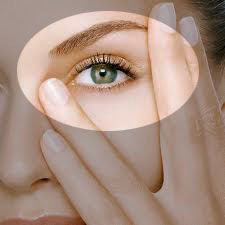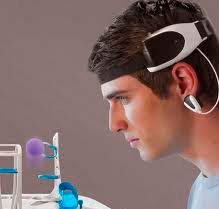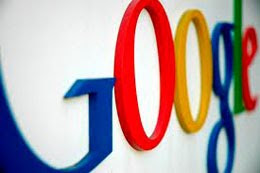
The morning ritual of brewing a cup, the smell that perks you up before you take a sip and, of course, the flavor all make it your favorite beverage aside from water (water’s delicious!). You have 5 health reasons not to quit coffee, here they are:
1. It protects your heart: Moderate coffee drinkers (1 to 3 cups/day) have lower rates of stroke than noncoffee drinkers, an effect linked to coffee’s antioxidants. Coffee has more antioxidants per serving than blueberries, making it the biggest source of antioxidants in American diets. All those antioxidants may help suppress the damaging effect of inflammation on arteries.
2. It diverts diabetes: Those antioxidants (chlorogenic acid and quinides, specifically) play another role: boosting your cells’ sensitivity to insulin, which helps regulate blood sugar. In fact, people who drink 4 or more cups of coffee each day may have a lower risk of developing type 2 diabetes, according to some studies.
3. Your liver loves it: OK, so the research here is limited, but it looks like the more coffee people drink, the lower their incidence of cirrhosis and other liver diseases. One analysis of nine studies found that every 2-cup increase in daily coffee intake reduced liver cancer risk by 43 percent.
4. It boosts your brain power: Drinking between 1 and 5 cups a day (admittedly a big range) may help reduce risk of dementia and Alzheimer’s disease, as well as Parkinson’s disease, studies suggest. Those antioxidants may ward off brain cell damage and help the neurotransmitters involved in cognitive function to work better.
5. It helps your headaches: And not just the withdrawal headaches caused by skipping your daily dose of caffeine! Studies show that 200 milligrams of caffeine—about the amount in 16 ounces of brewed coffee—provides relief from headaches, including migraines. Exactly how caffeine relieves headaches isn’t clear. But scientists do know that caffeine boosts the activity of brain cells, causing surrounding blood vessels to constrict.
Now, that’s not to say that coffee doesn’t have any pitfalls—it does. Some people are super-sensitive to caffeine and get jittery or anxious after drinking coffee; habitual coffee drinkers usually develop a tolerance to caffeine that eliminates this problem (but they then need the caffeine to be alert and ward off withdrawal headaches). Coffee can also disturb sleep, especially as people age. Cutting some of the caffeine and drinking it earlier in the day can curb this effect. Lastly, unfiltered coffee (like that made with a French press) can raise LDL cholesterol, so use a filter for heart health.
 Expert says the most simple remedy for lightening dark circles and decreasing puffiness under the eyes—two of her patients' most common complaints—is splashing cold water on your face first thing in the morning, which shrinks the blood vessels and decreases eye puffiness.
Expert says the most simple remedy for lightening dark circles and decreasing puffiness under the eyes—two of her patients' most common complaints—is splashing cold water on your face first thing in the morning, which shrinks the blood vessels and decreases eye puffiness. Lights will go out around the world Saturday with hundreds of millions of people set to take part in the Earth Hour climate change campaign, which this year will also mark Japan’s earthquake and tsunami.
Lights will go out around the world Saturday with hundreds of millions of people set to take part in the Earth Hour climate change campaign, which this year will also mark Japan’s earthquake and tsunami. Controlling a video game with your mind might seem the stuff of science fiction, but then again, so did the idea of motion controls.
Controlling a video game with your mind might seem the stuff of science fiction, but then again, so did the idea of motion controls. Google yesterday admitted that up to 260,000 smartphones have been hacked after handset users unwittingly downloaded virus-infected apps. The threat came to light last week when the technology giant was forced to withdraw at least 50 apps from its official Android Market.
Google yesterday admitted that up to 260,000 smartphones have been hacked after handset users unwittingly downloaded virus-infected apps. The threat came to light last week when the technology giant was forced to withdraw at least 50 apps from its official Android Market. It was a picturesque fishing town where tourists flocked to enjoy the coastal air and natural hot springs. But this horrifying picture shows all that remains of Minami Sanriku after it was destroyed by the tsunami that has wreaked devastation across Japan.
It was a picturesque fishing town where tourists flocked to enjoy the coastal air and natural hot springs. But this horrifying picture shows all that remains of Minami Sanriku after it was destroyed by the tsunami that has wreaked devastation across Japan. The morning ritual of brewing a cup, the smell that perks you up before you take a sip and, of course, the flavor all make it your favorite beverage aside from water (water’s delicious!). You have 5 health reasons not to quit coffee, here they are:
The morning ritual of brewing a cup, the smell that perks you up before you take a sip and, of course, the flavor all make it your favorite beverage aside from water (water’s delicious!). You have 5 health reasons not to quit coffee, here they are: The New Yorker, 24, concedes she wasn't ready at the time, but is thankful she has always practiced safe sex.
The New Yorker, 24, concedes she wasn't ready at the time, but is thankful she has always practiced safe sex.
